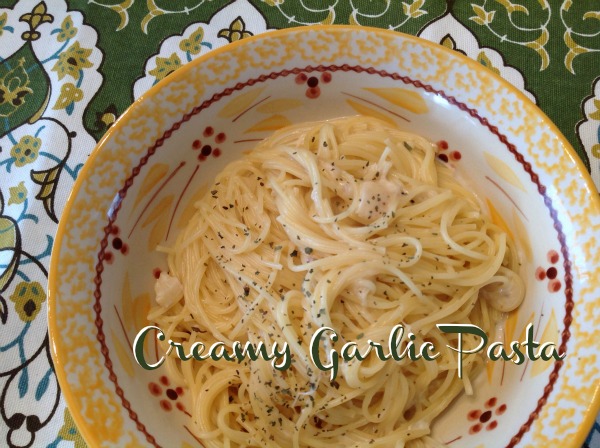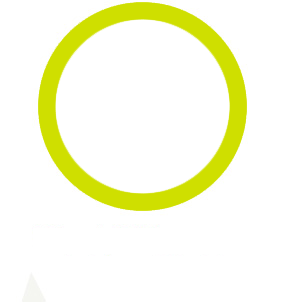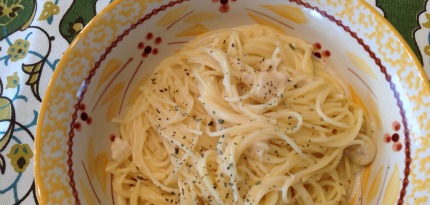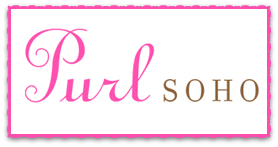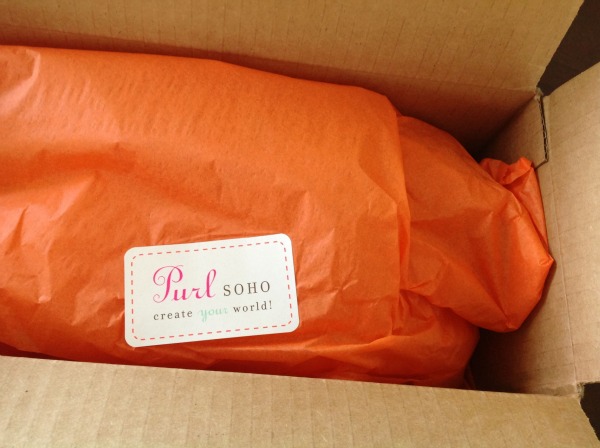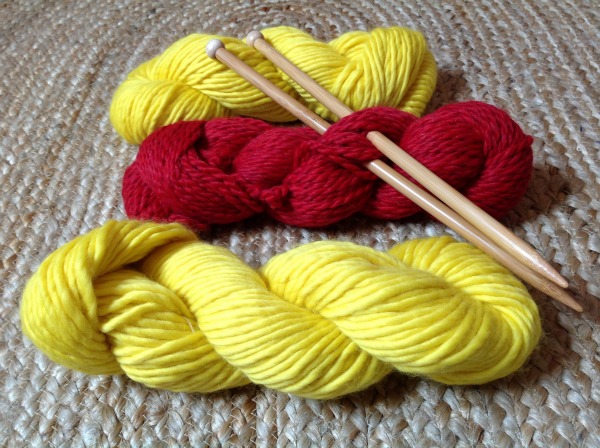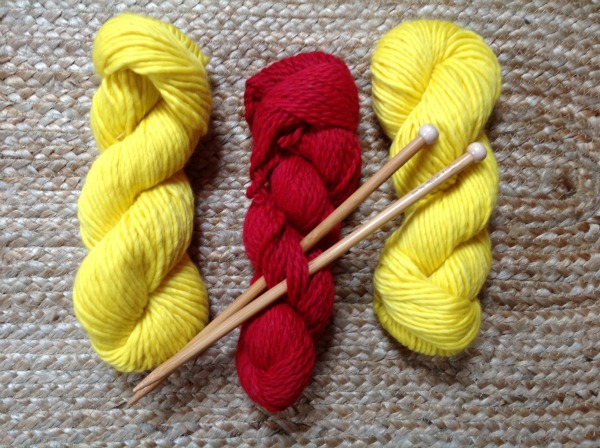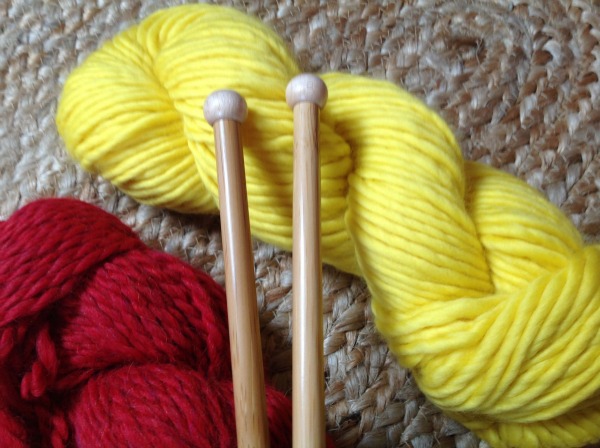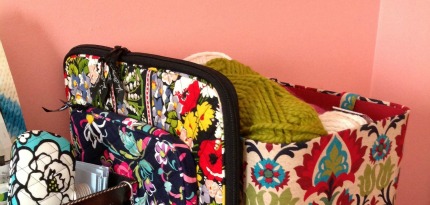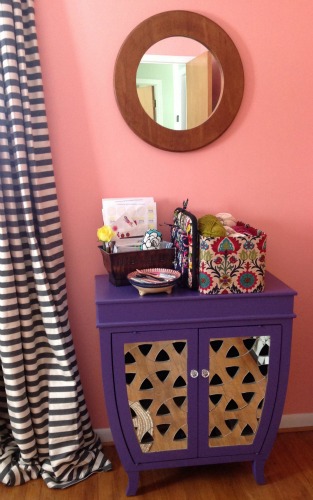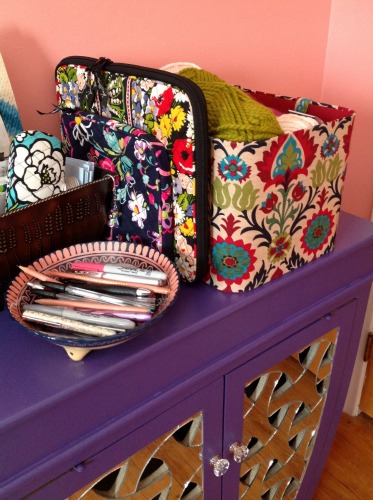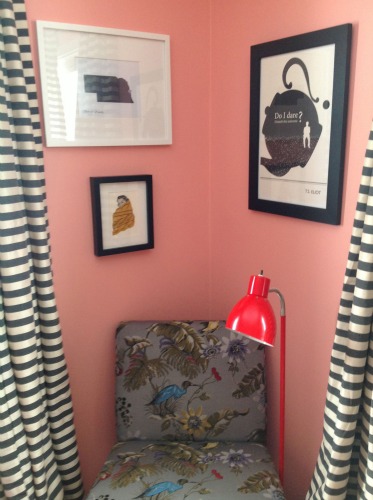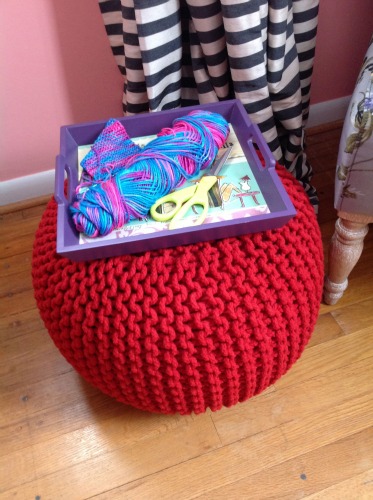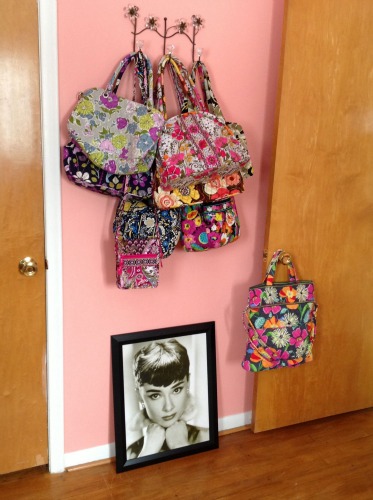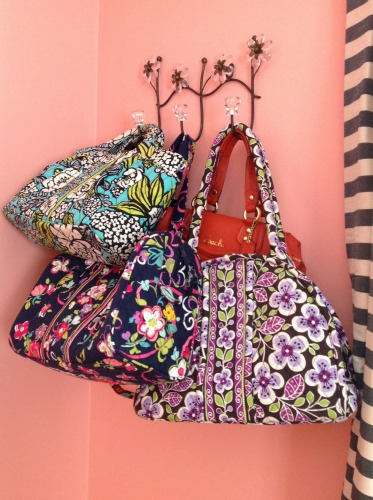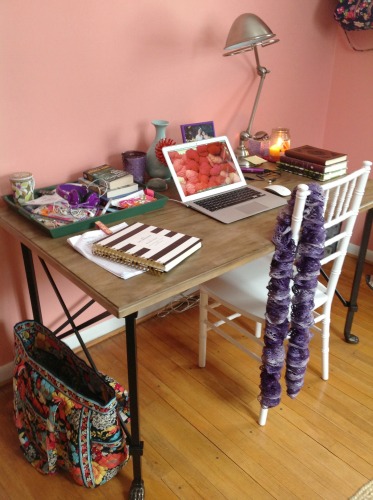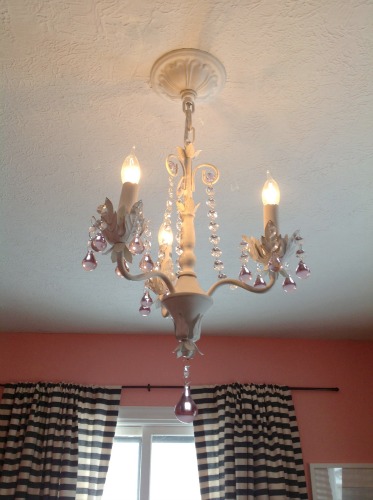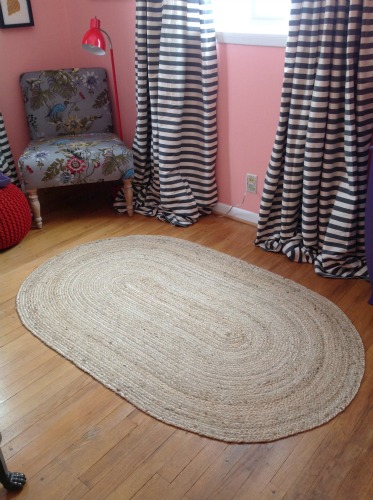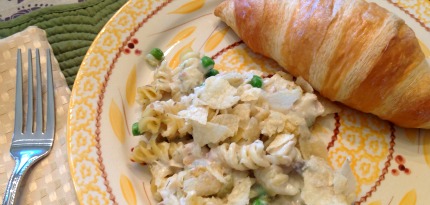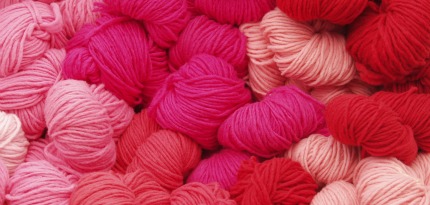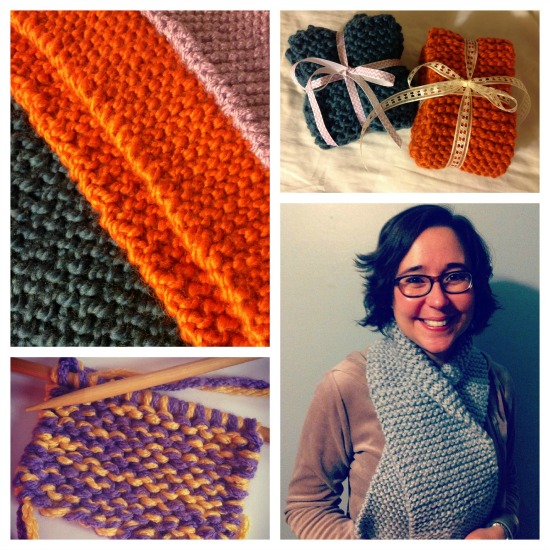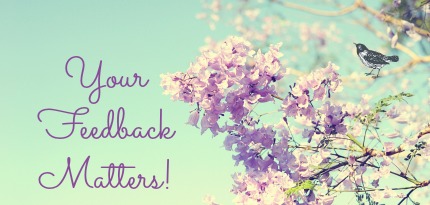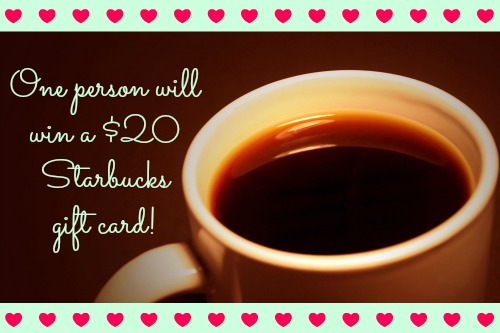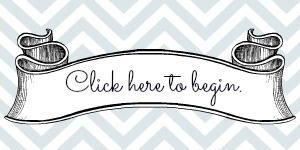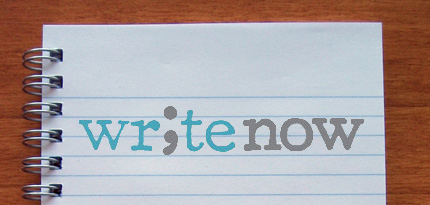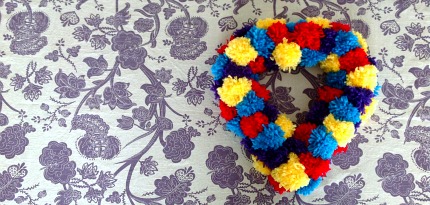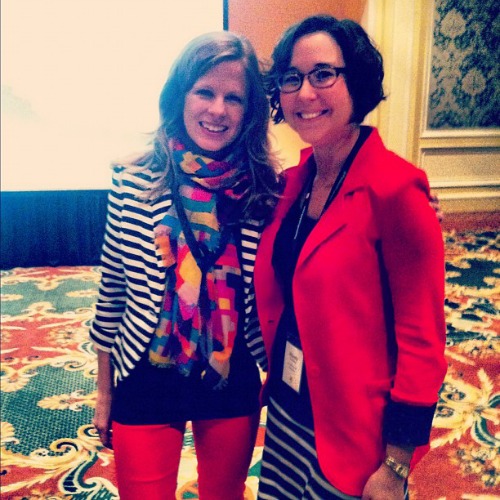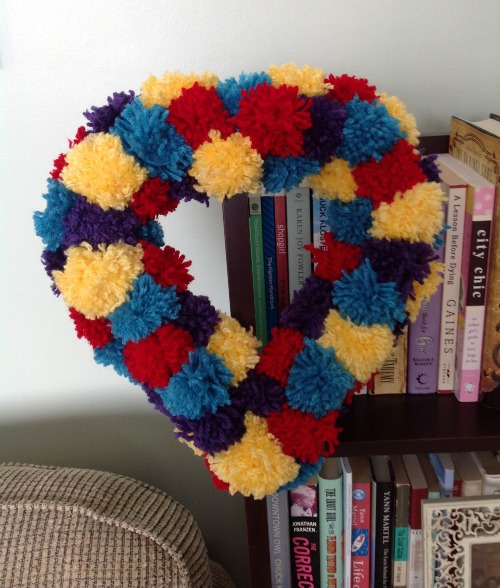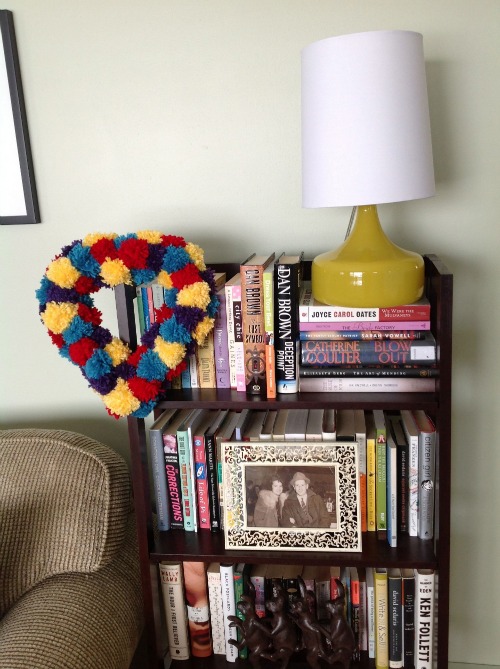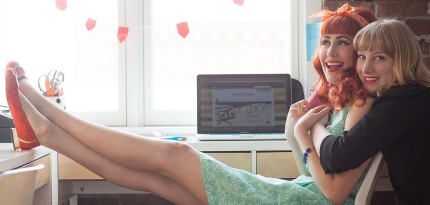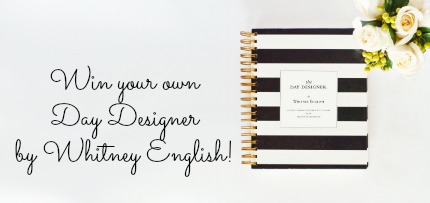My affinity for paper knows no bounds. Likely a result from my newspaper background, I develop an emotional reaction when beholding paper that is simply beautiful: note cards, letterhead, envelopes, tablets, books, magazines, even basic birthday greetings. Despite the growing hours I spend each week working, living, and playing in the digital world, I am still continuously pulled back in a space of paper. And I love it.
While attending an Alt Summit session last month about organizing my online life, our presenter, Erin Loechner, mentioned a very analog method to manage blog posts: through paper! Yes, paper. It is a spiral-bound day planner that has quickly become a favorite of bloggers everywhere. When Erin mentioned The Day Designer and its creator, Whitney English, who was in the audience, I made a mental note to investigate.
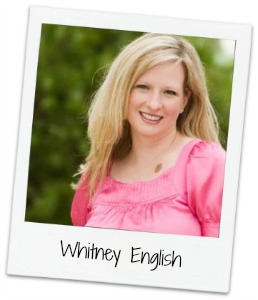
After connecting with Whitney online and learning more about her business, her philosophy, and The Day Designer, I collected my notes (paper and electronic alike) to share with you.
>> Also! Whitney was kind enough to include a Day Designer giveaway as part of her Q&A. To win your very own Day Designer, simply comment below. Share your goals for organization, online or elsewhere. One winner will be selected at random and contacted via email. The Day Designer giveaway closes on Wednesday, March 6. Good luck!
WT: Let’s start with your background. Provide an overview of where you grew up, what you studied in school, any activities or memories that you fondly recall.
WE: I was born in Texas but grew up in Oklahoma City. I went to a small private high school, then graduated from Oklahoma State University with a degree in Facilities Management (which is basically interior design with business courses). I completed an internship with designer Charles Faudree in Tulsa, and later did some graduate work in Design and Management at Parsons in New York City. All through high school and college, I worked for various entrepreneurs in creative fields, and loved every experience I had in the creative/entrepreneurial arena.
Clearly you have an affinity for paper and the like. Share with me your initial thoughts as you began spending more time communicating online. Did your letter-writing drop off due to email?
Sadly, my letter-writing has suffered lately, but I would say that it’s due in part to being busy with kids, not because I communicate and connect mostly online. It’s definitely a personal mission to work towards connecting with loved ones more via the hand-written note, and my kids will definitely be learning how to write thank-you notes at an early age!
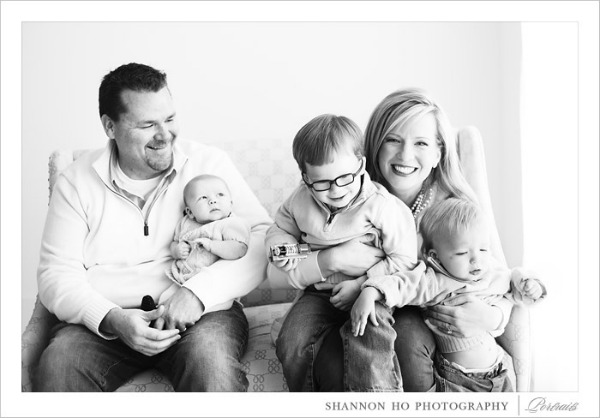
Much like you, I live for the handwritten word. What are your thoughts about so much of our personal communication moving to digital platforms?
Social media has been a fascinating journey into the science of human connection. As humans, we’re hard-wired to want to make that connection and engage with others. As creative entrepreneurs, we find social media is an excellent canvas with which to share our ideas with the rest of the world. As digital communications have become a commodity, I believe it’s actually driven up the value of the hand-written word. Sure, we can send a tweet, or leave a message on a Facebook wall, but it’s never going to mean the same as a hand-written note. Digital communications make the hand-written word worth more – not less.
Let’s transition to your professional world. What prompted you to launch your website?
I launched my website back in late 2002 or early 2003 whenever I started a wholesale, imprintable stationery company. Over the years, the website was used to showcase my imprintable designs, but I’ve been slowly transitioning it into a more personal platform and blog.
Tell me more about the line of products you design and sell.
For over a decade, I designed imprintable invitations and note cards and sold them wholesale to stores all over the world. At one time, our products were in almost 3,000 stores worldwide. With the success of the imprintable line came forays into personalized stationery and gift products. Some of my more popular products were a line of note sheets on a clear acrylic clipboard – we called them ClipSheets – and a line of eco-friendly, reusable shopping bags called Trend-E-Totes. As the imprintable industry declined, however, I found it necessary to close the wholesale business. I learned a lot from that decade in business. If anyone asked me if I would do it all over again, I definitely would! I’m glad I have some experience under my belt now, and I’m definitely going to apply those lessons to future ventures.
Let’s talk the Day Designer. This little beauty seems to have taken the blogging world by storm. Tell me first about your inspiration to create it.
Last year I started a new venture with a product called the Day Designer. It’s a yearly strategic planner and daily agenda for the creative entrepreneur. I created the Day Designer because after years of sitting through strategic planning meetings and brand strategy sessions, I realized that I had done very little to internalize my values and execute living them through my brand. I also needed a product that would help me organize my appointments and schedule as a creative entrepreneur, and not just as a mom. I’ve been a creative entrepreneur for a lot longer than I’ve been a mother, and I always felt like there was a void in the marketplace when it came to agendas for female entrepreneurs. I have a few other product ideas up my sleeve, so who knows where the coming years will take me!

Why design something so “analog” as paper, especially when your primary audience for this project is primarily online?
I believe in writing things down. I believe that the lists and notes and ideas that we scrawl across bits of paper are incredibly powerful, and I don’t think the truly digital folks give writing much credit. I think our brains process what we write differently than we process what we type. The process of writing, literally, by hand, helps get ideas and thoughts and novelties out of our heads and into our hearts. When ideas live in our hearts, we find the energy to act on them. Heart-action produces much more powerful results than head-action. Heart-action can change the world, right? That’s why I believe in paper, and the process of writing things down.
Tell me how you, personally, use the Day Designer to manage your work and your life.
My Day Designer sits on my nightstand most of the time. I partially fill in future events – my husband’s work schedule, important events like kid’s programs and school parties, travel schedules. I use my Mac calendar to keep track of client appointments, because I make the appointments via email. At the beginning of each week, usually on Sunday afternoon when my kids are napping, I sit down and fill in that week’s events, and do some meal planning. Each daily page has a spot for the Top Three most important things to do that day – and I try to leave this as empty as possible until the day-of. When I was on maternity leave, every day literally had “make milk” in every day’s Top Three. The Top Three is so important because it helps you prioritize your day, and it also serves as a reflection tool. Writing down “make milk” every day brought the realization to the front of my mind that my kids are the most important thing in my life right now.
Throughout the day, I use the checklist section on the right side of each page to make notes of things I tell people I’m going to do. When I sit at my desk, I flip back to previous lists in my Day Designer and make sure I’ve done everything I’ve said I’m going to do. If I complete a task, I mark it off with a check. If the task has become obsolete, I mark through the entire line, crossing it off. I’ll also use this column in my Day Designer to make notes if I’m on a conference call. The idea is to get as much writing off of little lists that float around my desk, and into the Day Designer. I love that I can look back and celebrate accomplishments that might otherwise go unnoticed in my life!
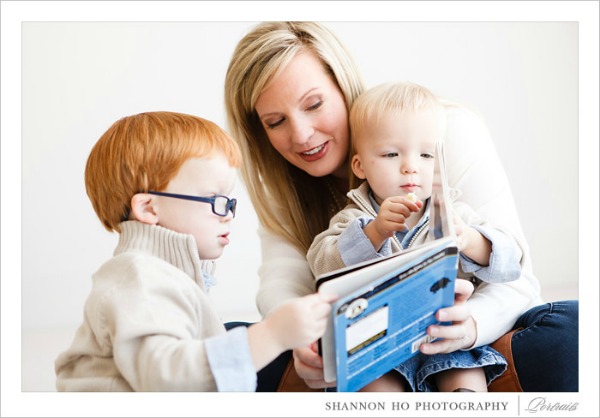
What has launching your website and following your passions taught you about yourself?
Actually, I think I’ve learned more from NOT following my passions than I have from following them. I’ve learned that money is not a motivator and that profit is not a purpose. About five years into my wholesale business, I started chasing the dollar signs, instead of my passions. Nothing but heartache came out of that. I also think that as a creative entrepreneur, our passions can change, and wax and wane, and we have to be cautious but defined about consistency. It’s important when building a team. I’ve learned that it’s important not to rush, and I’ve learned to never sacrifice the luxury of creative self-expression. That’s fuel for us creatives. The moment we stop creating, we’re headed to scary purpose-less burnout zone.
What motivates you to continually create beautiful things?
At the end of 2011, I was incredibly burned out. I stepped back, evaluated what needed to change, analyzed some actions, and then intentionally made some decisions that others would probably have defined as selfish. To a certain extent, the decisions were painful in the short term. However, they were the beginning of creative liberation. I started finding myself again, and the ideas started flowing again. So, I guess you could say that I create in order to preserve my sanity, to make my home a better place for my family, and to make the world a better place while I’m in it.
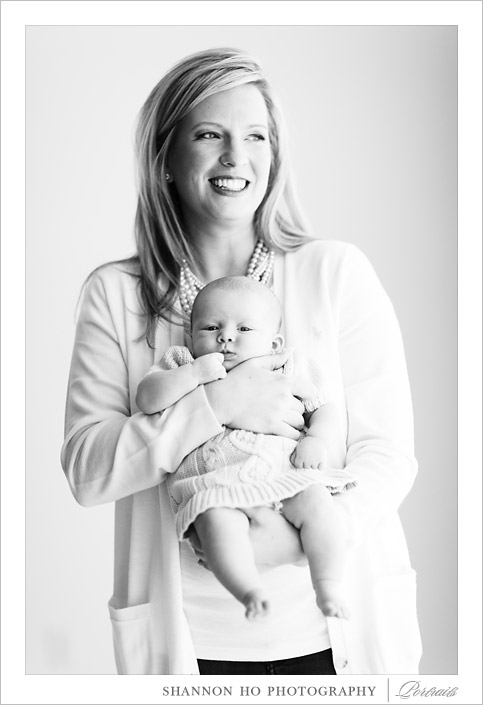
I noticed that you live in Oklahoma City. (Yay for the Midwest! I’m in Omaha.) What do you enjoy most about living in this part of the country?
Oklahoma City, is, for the most part, a small town, and I think that anyone who lives in a small town would tell you that it has it’s pros and cons. My favorite thing about Oklahoma City, though, is my family, and the network of friends who continues to support me without hesitation, and embrace my wild-fangled entrepreneurial ideas with so much unconditional love. I’m truly blessed.
Anything else I didn’t ask about?
I talk about purpose a lot, and people often ask me what my WHY statement is, so I thought I’d share it: Glorify God authentically, exemplify the power of choices and change, and love with gratitude and creativity. I try to practice the discipline of using that framework to make every decision.
And now … a few fun questions!
Describe your perfect meal.
Some kind of champagne cocktail, for starters. Then tuna tartare, followed by beef wellington, and if there is still room, some kind of extraordinarily exotic ice creams: think basil, honey, lavender flavors.
What’s your best-kept beauty secret?
Newly discovered Got2B Dry Shampoo. Secret revealed to me by my dear friend and Alt Summit roommate Amber Housley.
When you feel stressed or overwhelmed, what do you do to combat such feelings?
A couple of things. I’m pretty good at pep-talking myself, so I tell myself that feelings aren’t facts, they’re just emotions trying to get me off course. I go back to my WHY statement and see if it’s in alignment with my actions. I love inspirational quotes, and my faith sustains me through Bible verses I’ve memorized over the years. If that’s not cutting it, I ask my husband or one of my best friends to listen to me. I’m not against resorting to therapy if I just can’t shake it.
What book changed your life?
Hands down, The Seven Habits of Highly Effective People by Stephen Covey. Start With Why by Simon Sinek was a more recent eye-opening read, and I also really enjoyed the paradigm shift provided by Daring Greatly by Brene Brown recently. Bottom line, I love books.
Editor’s note: Whitney English photos courtesy of Shannon Ho Photography.
